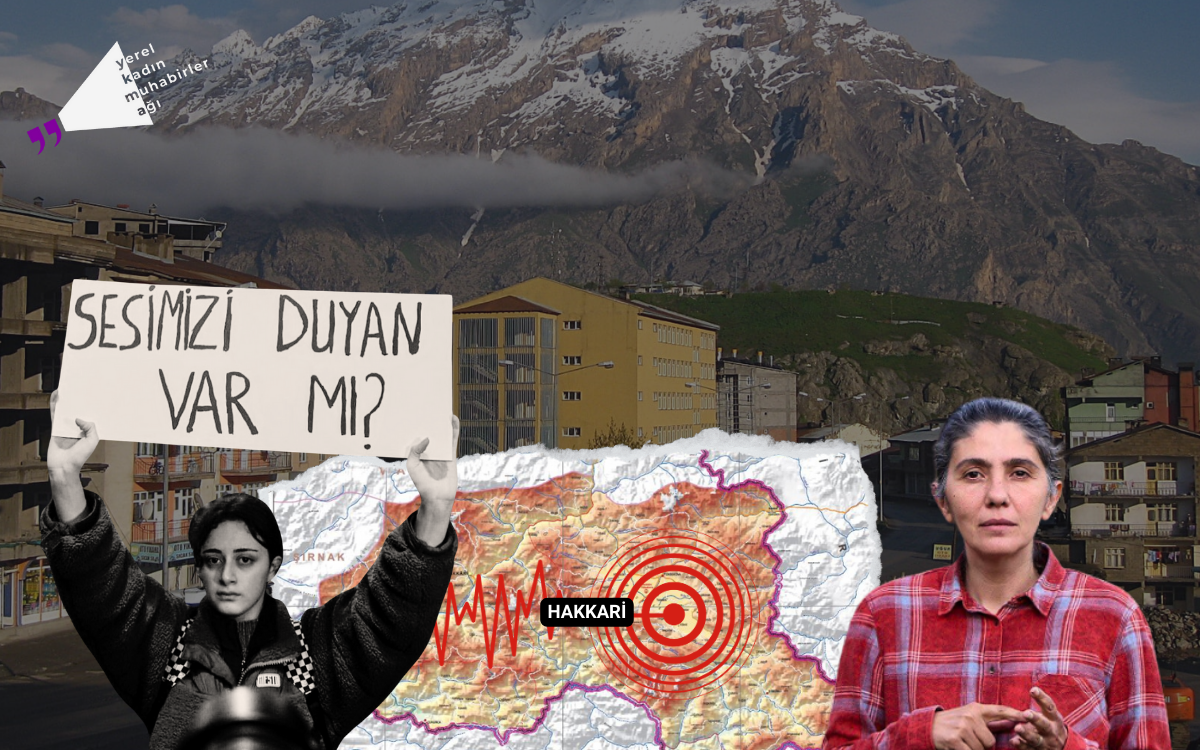Paylaş
Prof. Dr. Azad Sağlam Selçuk stated that education is the most important component of earthquake preparedness measures and said, “Earthquake education should be provided starting from kindergarten.”
Are sufficient precautions being taken regarding the potential earthquake in the provinces around Hakkari and Van? Is the regional population prepared for earthquakes?
Earthquake expert Prof. Dr. Azad Sağlam Selçuk answered.
“Hatay’s Earthquake Reality Was Known”
What are your expert opinions regarding earthquakes?
Earthquakes are among the greatest ongoing natural events on Earth. As in the entire world, destructive earthquakes have occurred in Turkey and in our geographical region both in historical periods and in instrumental periods.
We humans have transformed these earthquakes into disasters, losing our lives as a result of the effects these earthquakes created, and our homes have become unusable.
As a country, after every earthquake, we frequently use the phrase “learning lessons from this earthquake,” and two or three months later, we continue to live our lives forgetting everything we experienced, namely the reality of earthquakes.
As after every earthquake, we cannot move beyond the question “where and when do we expect the big earthquake,” which has become one of the questions we frequently ask.
We may not be able to predict when the accumulated stress in the Earth’s crust will be released, but we can actually determine where it will occur through scientific studies. Additionally, we can access information about the recurrence intervals of earthquakes, when they last produced an earthquake, and at what intervals they might produce earthquakes again in the future.
For example, it is one of the known facts that Hatay was destroyed due to earthquakes in historical periods and hundreds of thousands of lives were lost.
“Earthquake Regulations Must be Followed”
What is your assessment of the February 6 earthquakes?
As a country, unfortunately, we woke up on the morning of February 6 to the reality of an earthquake, which was one of the most horrific disasters.
Eleven of our provinces were destroyed, four of which became uninhabitable. A year has passed since the earthquakes. Among the questions that should be asked is: wasn’t it known that there would be an earthquake in this region and that it would cause destruction? The answer to this question was actually known.
In reports prepared in light of multiple scientific studies, it was known that there would be a major earthquake on the East Anatolian Fault and that this possibility was higher especially toward the south of the fault.
If earthquakes have occurred in a region in historical periods, the reality is that earthquakes will definitely occur again in the same region after a certain number of years (after 100 years or after 600 years).
For this reason, these earthquakes tell us that if a region has experienced destructive earthquakes, whether in historical or instrumental periods, all buildings, roads, and similar structures must be constructed in accordance with earthquake regulations.
“Earthquake Education Must be Provided”
Despite expert opinions and our country being located on fault lines, why are we not prepared for earthquakes?
We individuals who make up society are actually the ones who transform the impact of earthquakes into disasters. The answer to why we are not prepared for earthquakes is actually very simple and clear: Education.
We have still not been able to accept this reality. In general, our earthquake-related guidelines are well prepared.
However, we have deficiencies as a country in terms of implementation and enforcement. For example, when buying a house, we still do not question whether the house was built in accordance with earthquake regulations or whether it was constructed with a foundation suitable for the ground.
One of the fundamental steps we need to take is to show, starting from kindergartens, that earthquakes, landslides, floods, and similar events are natural phenomena, and that the only way to be affected by these events is to do the right thing in the right place.
As people living in this country, we need to take appropriate precautions by using our minds instead of showing resistance to such natural events.
“Do not Build Houses on Stream Beds”
As a region that experienced the Van earthquake, small earthquakes have been occurring consecutively in the Hakkari region recently. What do these indicate, what are your expert opinions on this, and considering this geographical region, are we prepared for possible earthquakes?
Before experiencing the 2011 earthquake, multiple destructive earthquakes actually occurred in the region from the 1900s until 2011.
The most important of these was the 1976 Çaldıran earthquake. In this earthquake, 3,940 people lost their lives and approximately 10,000 structures built under the conditions of that time became unusable. When moving from Hakkari in the south toward Iğdır in the north, destructive earthquakes can be observed.
Especially after the February 6 earthquakes, many researchers have indicated that the accumulated stress has been transferred in multiple directions.
One of these places is the Yüksekova-Şemdinli fault zone. It is known that no large-scale earthquake has occurred in this region for many years. However, there is no information available about when this earthquake will occur.
Within the scope of a project prepared in collaboration with MTA, AFAD, and TÜBİTAK under the coordination of Van Yüzüncü Yıl University, the region will be studied in detail between 2024-2025, and more detailed information will be obtained about the earthquake generation potential of the Yüksekova-Şemdinli fault zone.
What should be done to prevent any earthquake from creating terrible consequences?
The most fundamental way to avoid the terrible consequences of an earthquake is to ensure that the areas we live in are safe areas.
We individuals, who are the smallest building blocks of society, can start by having earthquake performance information about our homes. We must supervise both ourselves and the necessary institutions to ensure that appropriate housing is built in appropriate locations.
For example, we should not go to stream beds and build unlicensed houses. It is possible to multiply these examples. However, fundamentally, we can start by being ethical individuals and conducting all procedures and applications in accordance with regulations.
Nejla KIRBAŞ






